
Over the last half-century, rural economic development approaches have overemphasized the recruitment of business from outside the area as its first order of business – to the detriment of strengthening the local businesses and people and place assets that are the true foundation on which current and future development and prosperity depend.
In emerging wealth-building approaches to development, communities first identify and understand their natural, social, network, infrastructure, business and organizational, financial, and people assets, and seek to strengthen each asset, especially to benefit those previously left out, through every development effort.
Building Block Evidence
Evidence suggests that providing incentives to businesses to relocate to a community or region, although still attractive to elected leaders as a primary local economic development strategy, are gradually being replaced by asset-building approaches.1-4 Rural regions have a diverse range of assets (individual, organizational, community, and cultural) to leverage in community and economic development,5-7 and reports assert that momentum is building in multiple sectors for asset- and wealth-building focused work.8
Foundational work of Kretzmann and McKnight’s (1993) framework for asset-based community development (ABCD) emphasizes “building an asset-base in households and communities that is transferable across generations”.9 This means identifying existing assets, building on these or new assets, eliminating structures that inhibit this process, and linking local community or organizational assets to the regional or national economy.9 Research on wealth creation value chains focuses on integrating rural assets into broader economies for community benefit.10 Such value chains are “a business model based on shared economic, social, and environmental values in which buyers, processors, producers, and others work together for mutual benefit to create value in response to demand”.10
Studies to date are inconclusive about the associations between asset-based community development and population health outcomes.11 However, experts suggest that approaches that promote connectedness and build capacity can positively impact health and well-being 11 when community engagement includes “meaningful activity,” such as employment and social clubs.12 Social infrastructure – active community organizations, business support for community projects, and community linkages – can be positively associated with local economic development.13
Regional differences in rural assets may be important to consider in asset-building approaches, according to recent analysis by the NORC Walsh Center for Rural Health of community forums and State Offices of Rural Health across the US. Potentially unique assets include the cultural richness of border regions; increased resiliency in regions that have experienced historic natural disasters; regions with identities tightly tied to the natural environment and tourism; and regions with deep networks of partners at local, state, and regional levels.8
Curated REsources
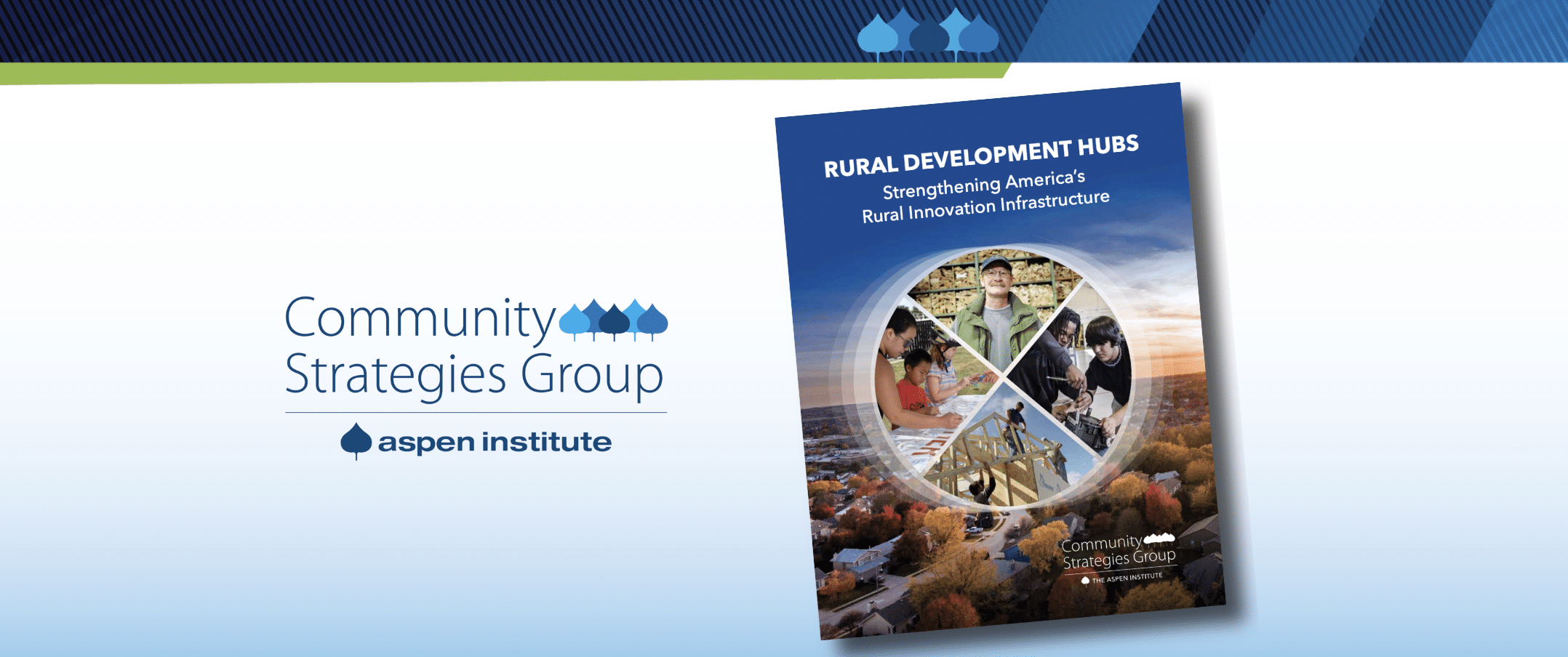
Rural Development Hubs: Strengthening America’s Rural Innovation Infrastructure
Rural Development Hubs are a specific set of intermediaries that are doing development differently in rural America. They are main players advancing an asset-based, wealth-building, approach to rural community and economic development.

WealthWorks: A Powerful Tool for Thriving Rural Places
WealthWorks is an approach to doing economic development differently that inspired and continues to inform the Thrive Rural Framework. Learn more about the WealthWorks approach.
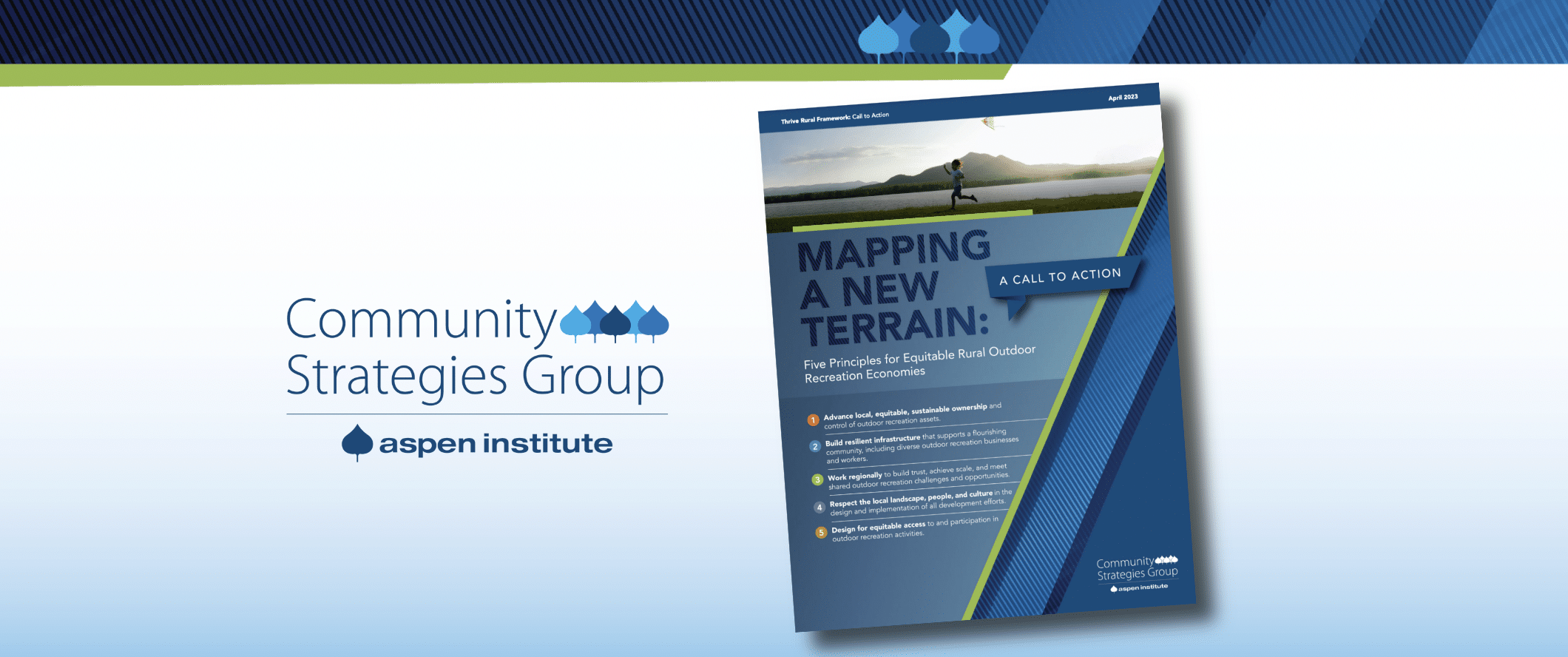
Mapping a New Terrain: Call to Action
As new rural outdoor recreation economies take root, we can meet this moment by improving how we do outdoor recreation development to better support rural families, businesses, and workers, create more sustainable and equitable economic systems, and improve local health and wellbeing.
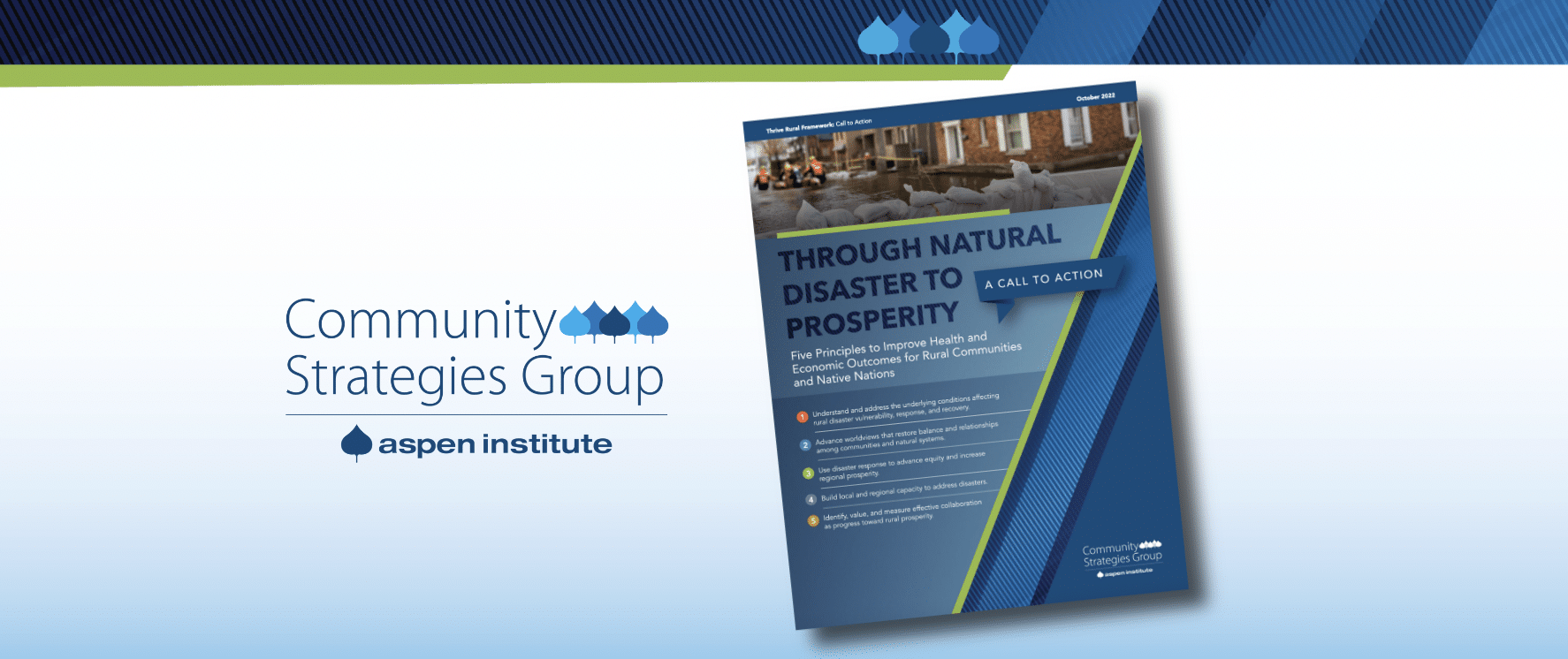
Through Natural Disaster to Prosperity: A Call to Action
Need actionable steps in your equitable disaster preparedness or recovery work? This report highlights best practices from the field.
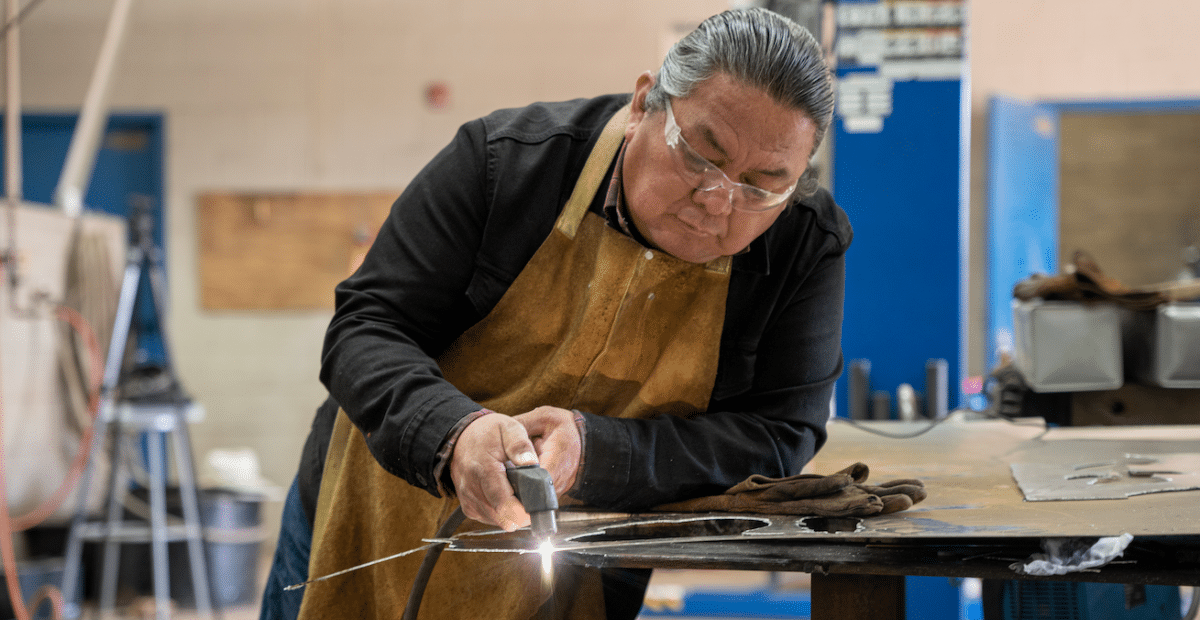
From Competition to Cooperation: Rural Wealth Creation
Insights from rural practitioners who are advancing equitable prosperity and economic development in a way that embraces and strengthens the unique assets of rural regions.

Translating Federal Opportunities into Local Resources
This short case study has insights and tips on how rural communities with limited staffing and resources can understand, prepare for, and compete for finite federal funds.

Pathways to Health Equity: Rural Wellbeing and Regional Assets
How the health equity and economic development fields intersect and can collaborate to bring prosperity to rural communities.
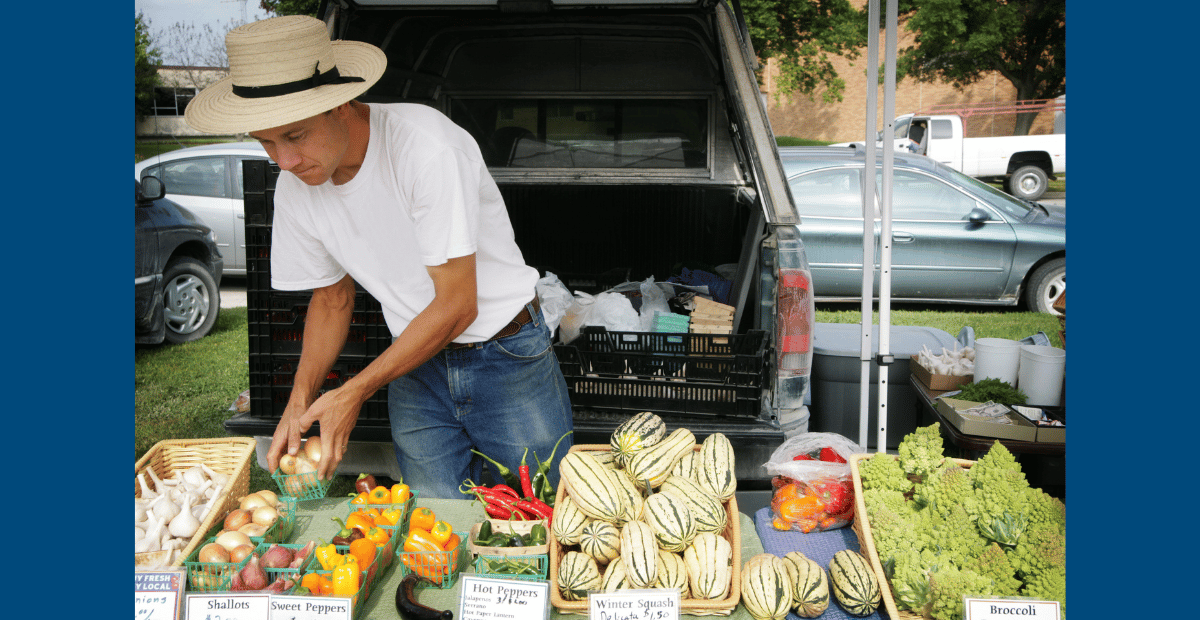
Thrive Rural Reflection: Local and Systems Level Assets
Many resources center asset-framing as primarily a household-level and local issue. But what is the systems-level responsibility for acting on assets?
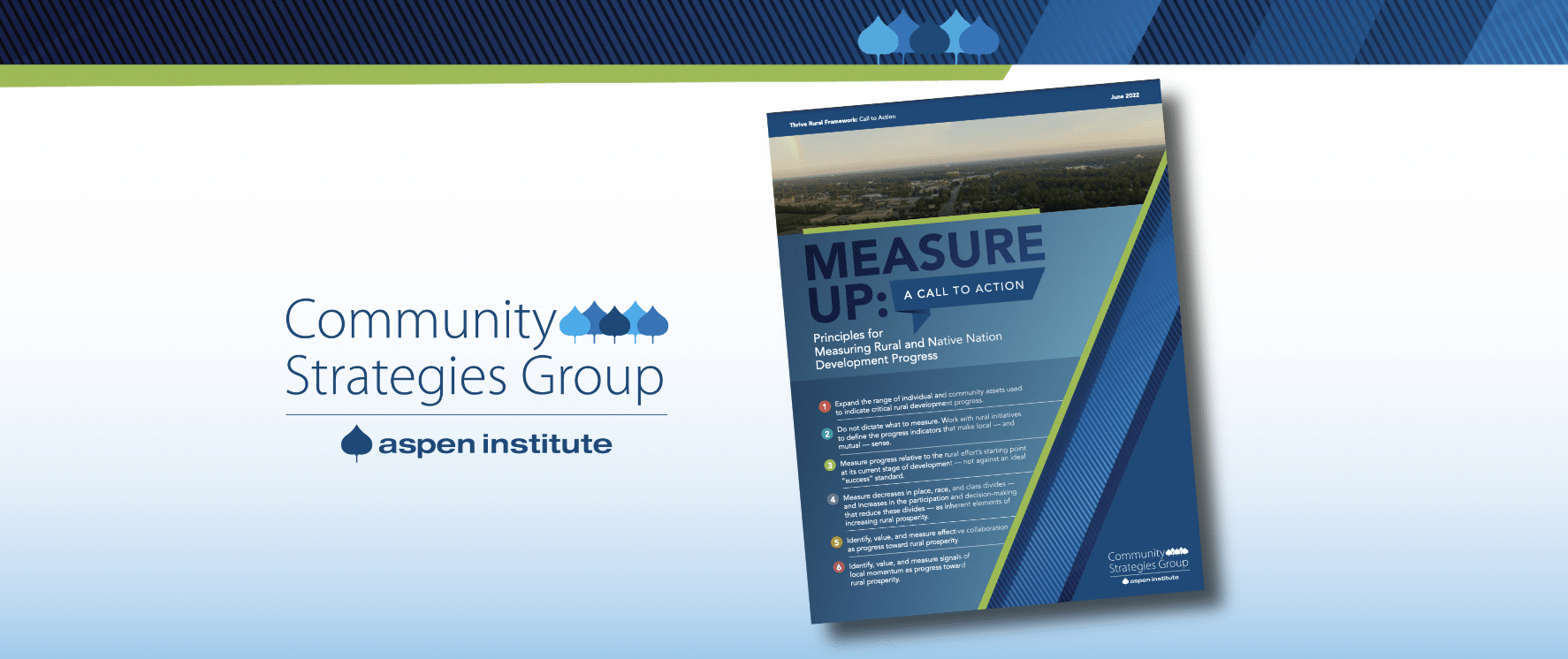
Measure Up: A Call to Action
Today, we have a generational opportunity to strengthen prosperity and equity in communities and Native nations across the rural United…
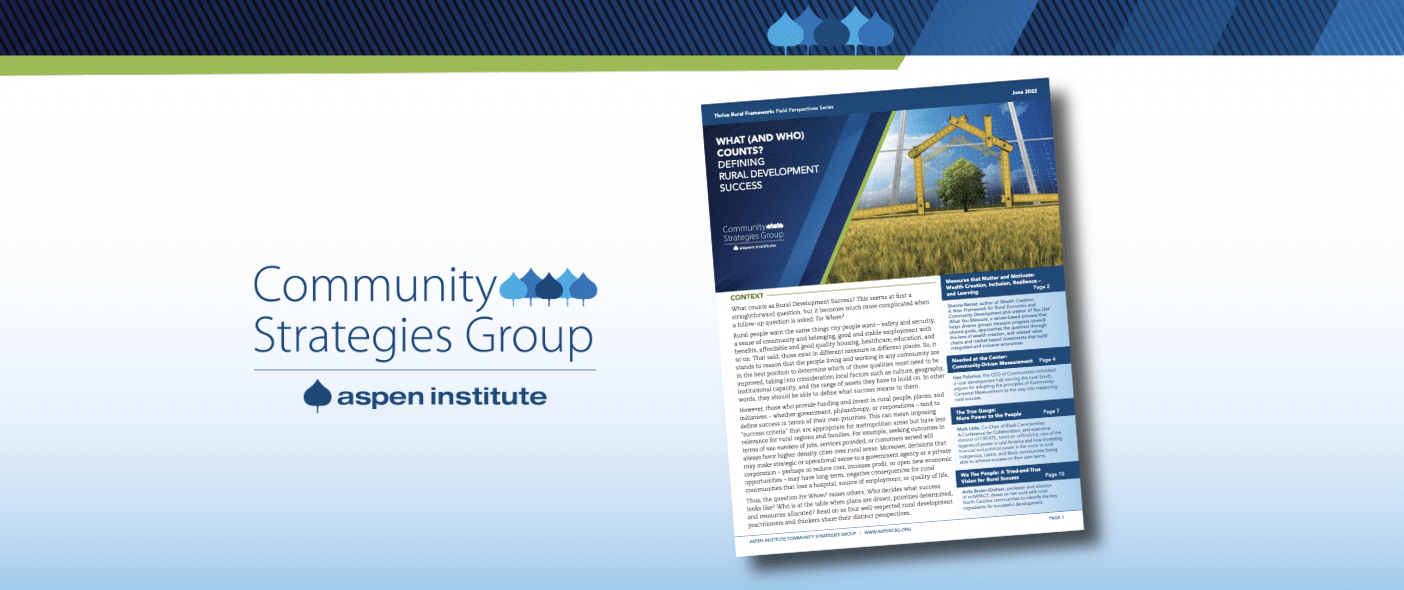
Defining Rural Development Success
There are no easy solutions for the many challenges that rural Americans face, but it’s clear that rural communities themselves…
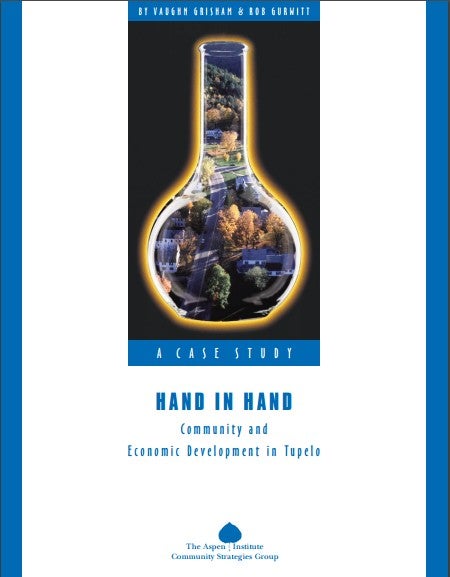
Community Economic Development in Tupelo (1999)
It would be easy, contemplating the riveting story of Tupelo’s growth since 1940, to imagine that it is unique, engendered…
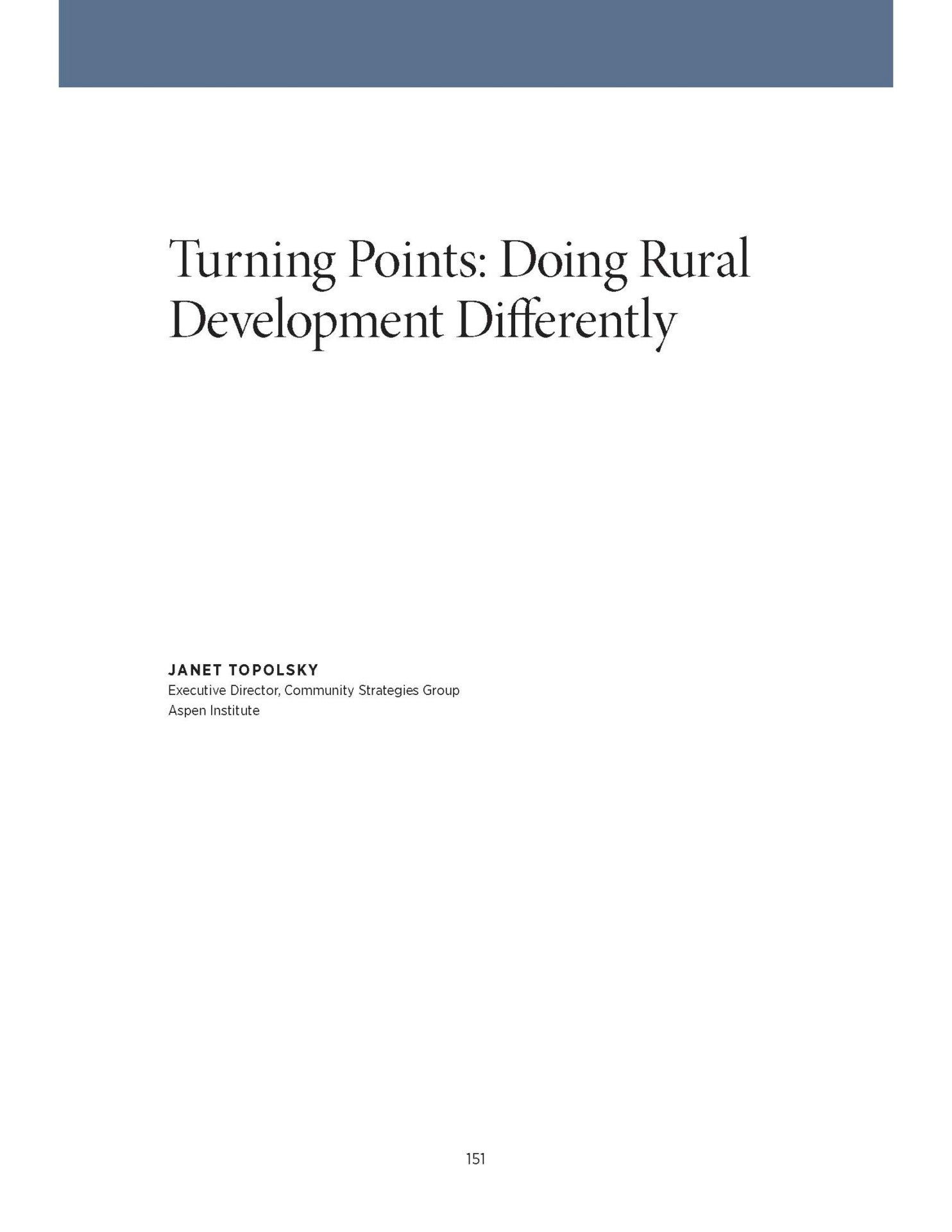
Turning Points: Doing Rural Development Differently
This book chapter highlights six action principles to “do economic development differently”—principles that shifts from the risky “winner takes all”…
Field Items
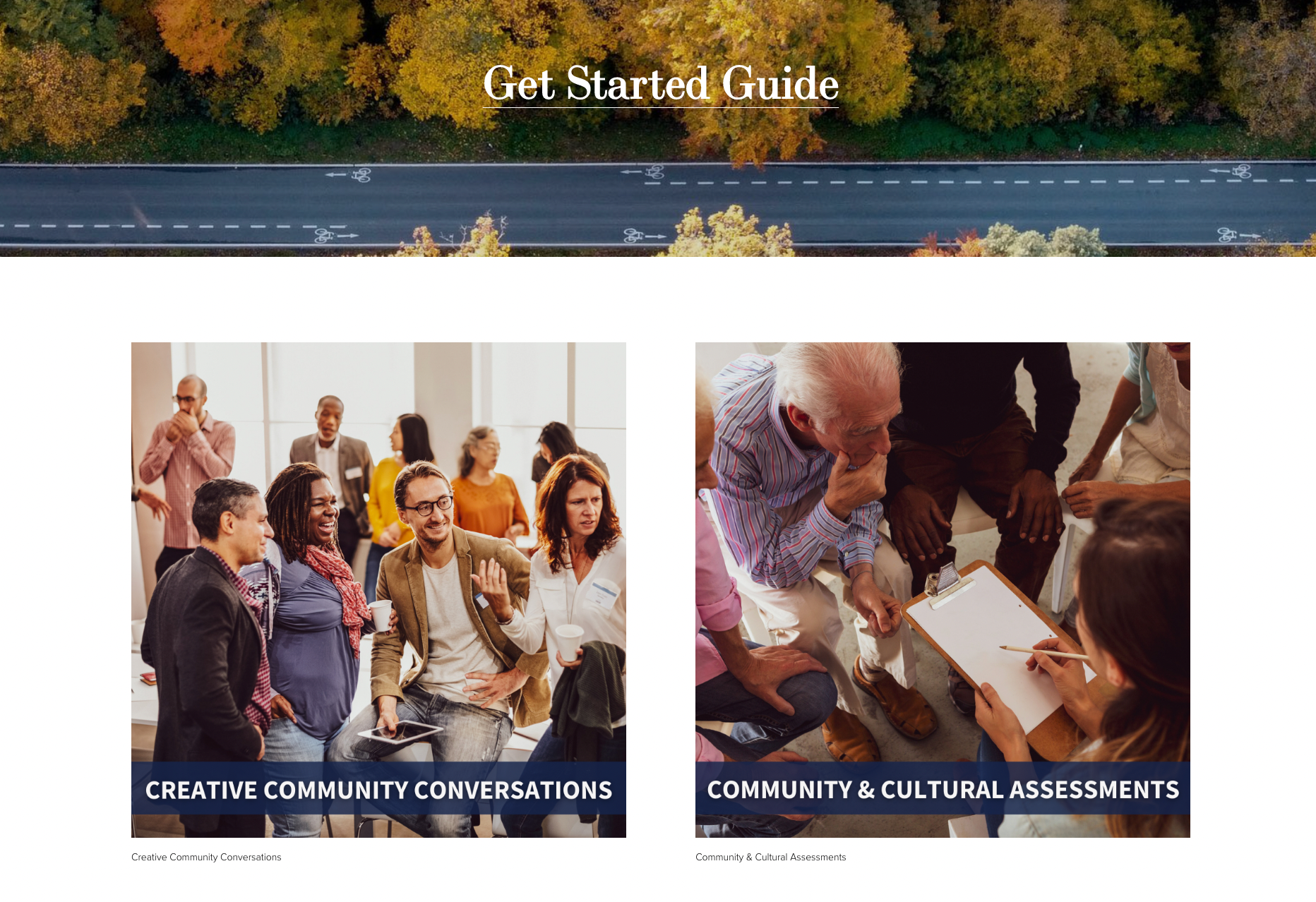
Rural America Placemaking Toolkit
The Rural America Placemaking Toolkit is a resource guide to showcase a variety of placemaking activities, projects, and success stories…

ASSET-BASED ECONOMIC DEVELOPMENT AND BUILDING SUSTAINABLE RURAL COMMUNITIES
ICMA Center for Sustainable Communities
A briefing paper from the ICMA Center for Sustainable Communities.

ASSET-BASED COMMUNITY APPROACHES FROM THE RURAL HEALTH INFORMATION HUB
Rural Health Information Hub
Toolkit explores how asset-based approaches for rural communities working to build community capacity to address different social determinants of health.
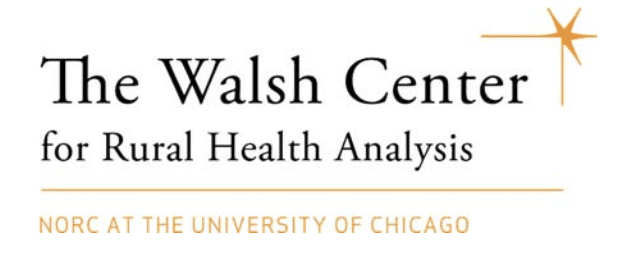
EXPLORING STRATEGIES TO IMPROVE HEALTH AND EQUITY IN RURAL COMMUNITIES
The Walsh Center for Rural Health Analysis
The NORC Walsh Center for Rural Health Analysis conducted formative research to enhance understanding of strengths and assets in rural places, identify key partners and change agents, and identify opportunities to leverage assets to improve rural health and equity.

RURAL ECONOMIC DEVELOPMENT WITH A PURPOSE
NADO Research Foundation’s Stronger CEDS, Stronger Regions Program
This brief from The NADO Research Foundation’s Stronger CEDS, Stronger Regions program focuses on how the policies and practices of rural economic development will now have to be transformed to meet the needs of new post-pandemic realities.

WEALTH: THE EIGHT CAPITALS
Wealthworks
To build a region’s wealth, WealthWorks considers not just financial assets, but includes the stock of all capitals in a region. The eight capitals: intellectual, financial, natural, cultural, built, political, individual and social. This approach takes into account all the features of a city, town, countryside or region that make it a good place to live, work and visit.
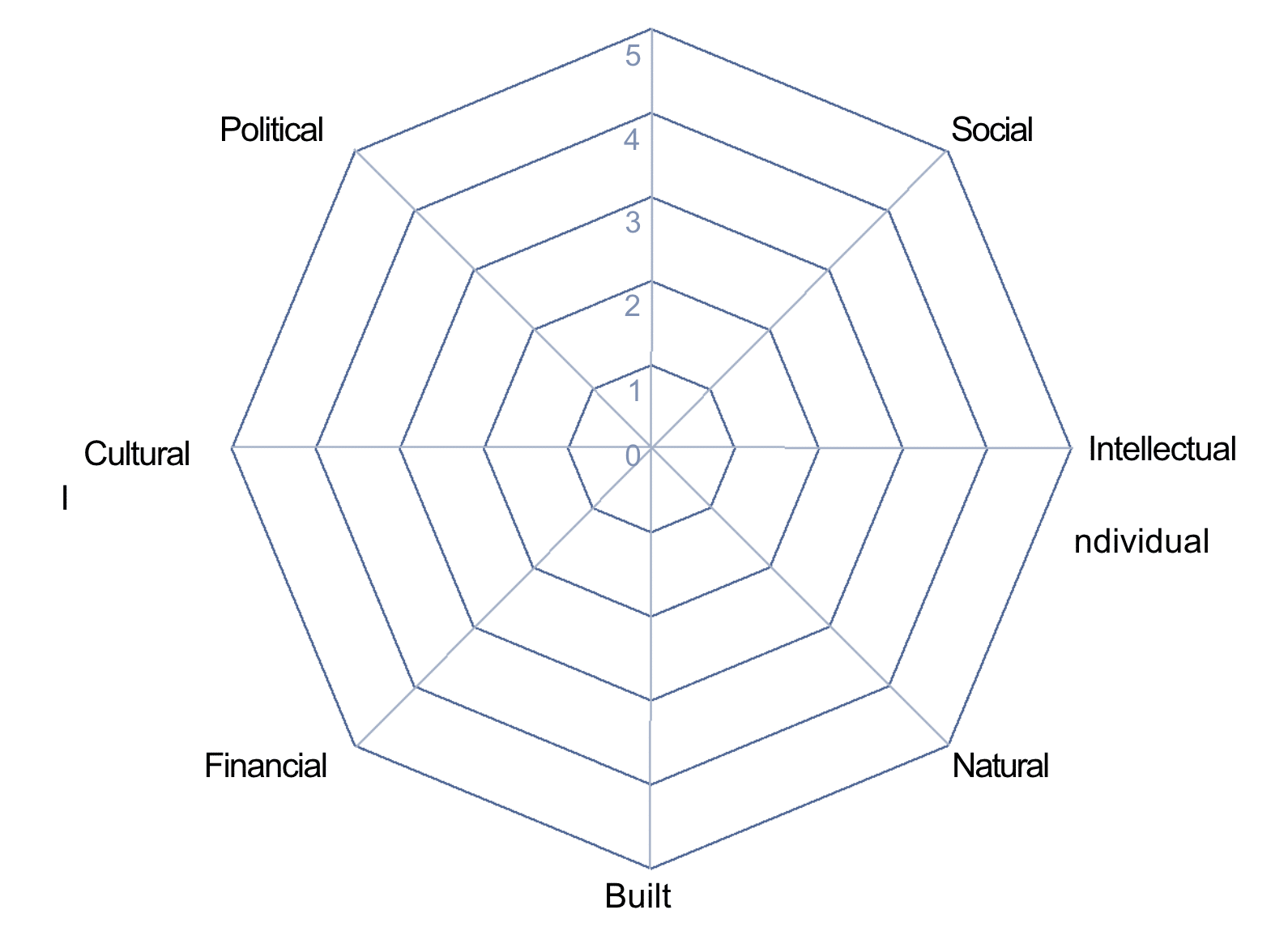
SPIDER DIAGRAM: ASSESSING WEALTH IN A SECTOR
WealthWorks
Worksheet and small group discussion questions tool from WealthWorks.
We see the framework as a living document, which necessarily must evolve over time, and we seek to expand the collective ownership of the Thrive Rural Framework among rural equity, opportunity, health, and prosperity ecosystem actors. Please share your insights with us about things the framework is missing or ways it should change.
